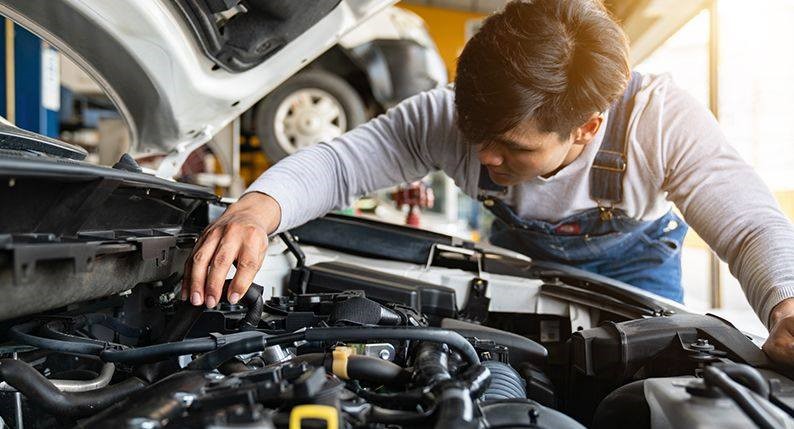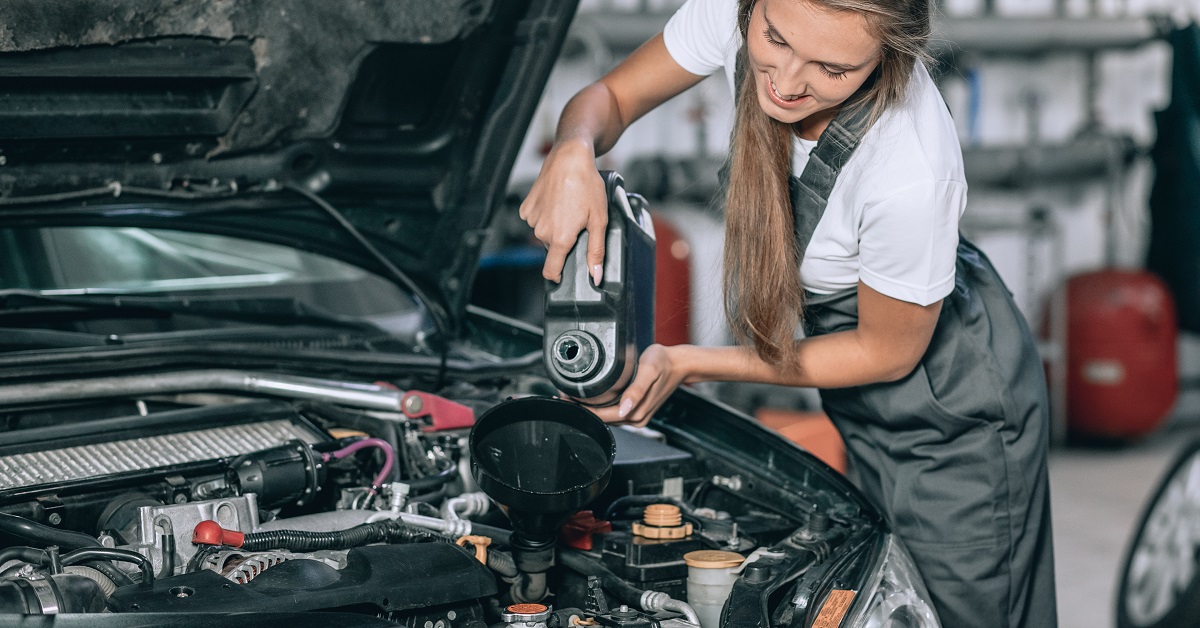All Categories
Featured
When your car starts to get too hot, it can be a frightening and stressful scenario. Comprehending just how to respond in these minutes and taking actions to protect against future getting too hot can assist shield your car and avoid costly repair services. Below's what to do if your automobile overheats and exactly how to avoid it from taking place once again.
If Your Auto Gets too hot,What to Do. Draw Over and Turn Off the Engine The very first thing you need to do if your auto starts to overheat is to draw over to a risk-free area, such as a parking area or the shoulder of the road. Transform off the engine promptly to prevent further damage. Running an overheated engine can cause irreparable damages to the internal components, including the radiator and cylinder heads.
Permit the Engine to Cool After shutting off the engine, give it time to cool off. Opening up the hood can aid release heat, however be careful as the engine and surrounding areas may still be incredibly hot. Wait at least 15-20 mins prior to trying any type of additional actions.
Inspect the Coolant Level Once the engine has cooled down, examine the coolant level. If it is reduced, you can add coolant or water to the radiator or coolant storage tank. Nonetheless, never open up the radiator cap while the engine is hot, as this can cause warm coolant to spray and shed you. Constantly wait until the engine is cool prior to opening the cap.
Examine for Leakages or Broken Pipes While you are checking the coolant level, look for any kind of noticeable leakages or damaged hose pipes under the hood. Cracked or damaged hose pipes can create coolant to leak out, leading to an overheating engine. You might require to call for roadside aid or a tow to obtain the automobile to an auto mechanic. if you spot any type of issues.
Require Support If you can't determine the root cause of the issue or the overheating lingers after completing the coolant, it's best to ask for roadside assistance. Driving with an overheated engine can create serious damage to your automobile and leave you stranded.
![]()
Just How to stop Your Auto from Overheating. Check Coolant Degrees On A Regular Basis One of the primary reasons for overheating is reduced coolant degrees. Make it a routine to inspect your coolant levels regularly and cover them off if needed. Describe your car's guidebook for the recommended coolant mix and maintenance intervals.
Evaluate Your Radiator Your radiator plays an important duty in keeping the engine cool. Make certain there are no obstructions or particles blocking air movement through the radiator. If your radiator is blocked or damaged, it might not operate appropriately, resulting in getting too hot.
Maintain Your Cooling System The cooling system should be flushed and replenished occasionally. Gradually, coolant can come to be infected or shed its performance. Adhere to the manufacturer's referrals for purging the system, usually every 30,000 to 50,000 miles.
Monitor the Thermostat and Water Pump The thermostat controls the temperature level of the engine, while the water pump distributes coolant via the engine. It can trigger the engine to get too hot if either of these components stops working. Have your mechanic inspect the thermostat and water pump throughout normal maintenance.
Avoid Straining the Automobile Overloading your car, specifically on long journeys or hot days, can stress the cooling and the engine system. Be mindful of your automobile's weight limits and attempt to prevent lugging hefty tons, specifically when driving in extreme temperatures.
Drive with Treatment Aggressive driving, such as speeding or rapid velocity, can enhance engine stress and anxiety and heat manufacturing. Reduce, particularly on hot days or when increasing steep slopes, to decrease the threat of overheating.
![]()
Conclusion. If your auto overheats can prevent more damages to your engine and assist you manage the scenario securely, recognizing what to do. By regularly checking your coolant degrees, evaluating the radiator and hose pipes, and keeping the cooling system, you can lower the danger of getting too hot. With positive care and proper maintenance, your vehicle will certainly remain in good condition, ensuring you stay safe and prevent expensive fixings down the road.
If Your Auto Gets too hot,What to Do. Draw Over and Turn Off the Engine The very first thing you need to do if your auto starts to overheat is to draw over to a risk-free area, such as a parking area or the shoulder of the road. Transform off the engine promptly to prevent further damage. Running an overheated engine can cause irreparable damages to the internal components, including the radiator and cylinder heads.
Permit the Engine to Cool After shutting off the engine, give it time to cool off. Opening up the hood can aid release heat, however be careful as the engine and surrounding areas may still be incredibly hot. Wait at least 15-20 mins prior to trying any type of additional actions.
Inspect the Coolant Level Once the engine has cooled down, examine the coolant level. If it is reduced, you can add coolant or water to the radiator or coolant storage tank. Nonetheless, never open up the radiator cap while the engine is hot, as this can cause warm coolant to spray and shed you. Constantly wait until the engine is cool prior to opening the cap.
Examine for Leakages or Broken Pipes While you are checking the coolant level, look for any kind of noticeable leakages or damaged hose pipes under the hood. Cracked or damaged hose pipes can create coolant to leak out, leading to an overheating engine. You might require to call for roadside aid or a tow to obtain the automobile to an auto mechanic. if you spot any type of issues.
Require Support If you can't determine the root cause of the issue or the overheating lingers after completing the coolant, it's best to ask for roadside assistance. Driving with an overheated engine can create serious damage to your automobile and leave you stranded.

Just How to stop Your Auto from Overheating. Check Coolant Degrees On A Regular Basis One of the primary reasons for overheating is reduced coolant degrees. Make it a routine to inspect your coolant levels regularly and cover them off if needed. Describe your car's guidebook for the recommended coolant mix and maintenance intervals.
Evaluate Your Radiator Your radiator plays an important duty in keeping the engine cool. Make certain there are no obstructions or particles blocking air movement through the radiator. If your radiator is blocked or damaged, it might not operate appropriately, resulting in getting too hot.
Maintain Your Cooling System The cooling system should be flushed and replenished occasionally. Gradually, coolant can come to be infected or shed its performance. Adhere to the manufacturer's referrals for purging the system, usually every 30,000 to 50,000 miles.
Monitor the Thermostat and Water Pump The thermostat controls the temperature level of the engine, while the water pump distributes coolant via the engine. It can trigger the engine to get too hot if either of these components stops working. Have your mechanic inspect the thermostat and water pump throughout normal maintenance.
Avoid Straining the Automobile Overloading your car, specifically on long journeys or hot days, can stress the cooling and the engine system. Be mindful of your automobile's weight limits and attempt to prevent lugging hefty tons, specifically when driving in extreme temperatures.
Drive with Treatment Aggressive driving, such as speeding or rapid velocity, can enhance engine stress and anxiety and heat manufacturing. Reduce, particularly on hot days or when increasing steep slopes, to decrease the threat of overheating.

Conclusion. If your auto overheats can prevent more damages to your engine and assist you manage the scenario securely, recognizing what to do. By regularly checking your coolant degrees, evaluating the radiator and hose pipes, and keeping the cooling system, you can lower the danger of getting too hot. With positive care and proper maintenance, your vehicle will certainly remain in good condition, ensuring you stay safe and prevent expensive fixings down the road.
Latest Posts
Living Area Furnishings Styles
Published Jan 19, 25
0 min read
Transform Your Bathroom with Bath Fitter
Published Jan 19, 25
0 min read
Montclare's Affordable Maintenance Options
Published Jan 19, 25
1 min read